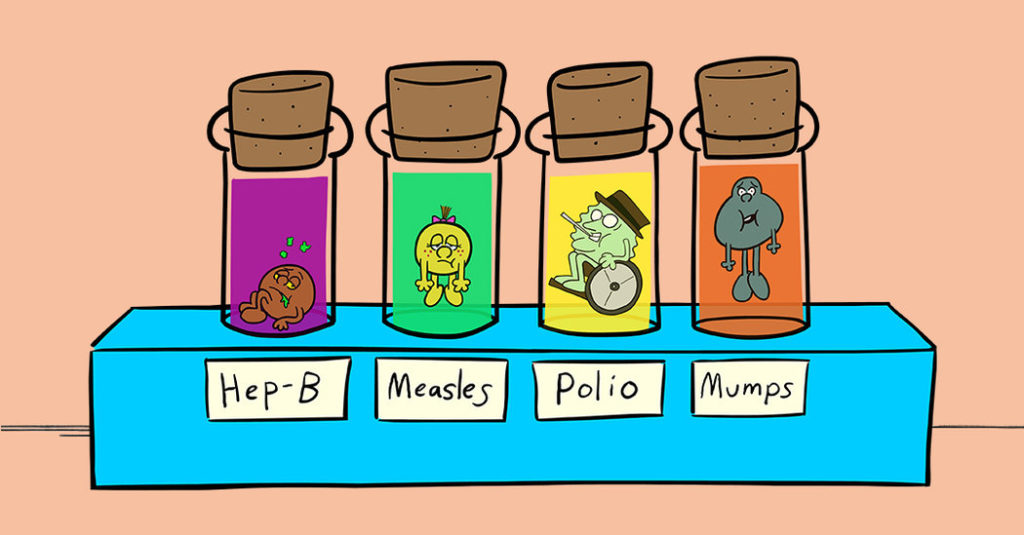
Vaccination. I have been asked by several people what I think about vaccinations for COVID. I honestly did not think much about the topic before we were vaccinated. When I was young, I got a small pox vaccination to eradicate smallpox. When I was a little older, I got a polio vaccination to eradicate polio. I took shingles vaccinations. I took shots for measles and mumps. When I have traveled abroad, I have gotten shots to prevent Malaria and Hepatitis. I take the flu and pneumonia shots. I take tetanus shots. Some of the shots have been required by governments; some have been my personal choice.
In every case I was doing what doctors recommended. I did not consult my minister, social media or my political party to make the decision.
I have family and personal friends who are physicians. They are all vaccinated and they recommend everyone get vaccinated for COVID. The doctor with whom I have talked the most about COVID has a deep personal concern that if we do not get the recent variant under control then an even more aggressive variant may develop. To her the decision neither involves politics, religion nor social media.
I support her thoughts. Our country did not get fully vaccinated for the first strain and what occurred was the development of a more virile virus. I share her fear.

Trevor Noah. While in Colorado, Steve Ekeberg graciously gave me a book by Trevor Noah titled, “Born a Crime.” Trevor has an interesting tale of growing up and he is a very interesting story teller. The book is a good read.
Trevor had a white father and black mother and was born in South Africa during apartheid. Mixed-color relationships were against the law — hence the title, “Born a Crime.”
Steve has mixed-color grandchildren, so the topic of the problems faced by mixed-color people is of interest to him. Granted South Africa is not the United States but Trevor’s insights are worth knowing.

Insights. Three insights really caught my eye.
First, he made the interesting point that the evil institutional-prejudice of apartheid was made possible because of strong tribal prejudices. The whites kept the prejudice of color in power because of intertribal prejudice, particularly the Zulu and Xhosa rivalry. The situation underscores my concern for prejudice in all forms. A major problem of the human condition is prejudice, whether it be about color, gender, tribe or any of the other numerous possibilities.
Second, he saw and practiced the power of language. He is Xhosa. He is fluent in several languages. He tells of hearing thugs talking in Zulu about mugging him. He talked to them in Zula and they apologized. Before he spoke, they were ready to mug him believing he was Xhosa. Speaking in Zulu made them believe he was not Xhosa.
Trevor wrote an interesting comment about the incident “… made me realize that language, even more than color, defines who you are to people.”
Third, his father a white man, did not agree with apartheid. Further evidence that whiteness is not sufficient for prejudice about color. Many whites are prejudice about color but being white is neither a necessary nor sufficient condition for color prejudice.
He shares many more interesting highlights— apartheid, being mixed-color in that environment, poverty, and more. His language is crude and raw in several chapters, but if you can handle bawdy language, the insights and highlights make the book worth reading.

Some talk the talk. During our time in Colorado, Jeny and I experienced a culture shock. The first two times we ate out, we had great meals and great company but we did not see a person of color as a patron or on the staff. The next time we ate was in Boulder, a community well known for being liberal. We again ate good food with great company. We were in an up-scale “preppy” bar/restaurant. None of the staff that I observed was a person of color. I assume 100-200 young people passed through while we were there. Only one group of five people of color came in as patrons. They came in as a group. They sat together and did not interact with those around them.
I told my granddaughter about the culture shock. Living in Mobile, a town of 50% people of color, we were accustomed to seeing people of color and seeing inter-color interactions with others. Boulder was very different. A liberal bastion but no color-cultural interactions.

Some walk the walk. Contrast my Boulder experience with my experience when I returned home to Alabama, a conservative state with a bad history of the treatment of people of color and still with many problems.
We buy our meat from a small country meat market and meat processing store. The day after I got home, I went to refill our meat supply. When I entered the small store, I went to the various refrigerated cases and gathered some items. Then I went to the main case and gave a clerk some requests. During that time another white clerk and a family of five blacks were engaged in a conversation that went beyond meat purchases, the interaction, was warm. personal, and filled with smiles.
I asked the clerk who was waiting on me to cut a roast in half. She went into the processing room. While I was at the main case, a young black man came in and went to the other cases gathering some purchases.
When the clerk returned a white woman had also come into the store and was waiting at the main case standing beside me. The clerk had not seen the black man come in before the white woman. When she finished with me, she turned to the white woman and asked if she could help her.
Without hesitation the woman pointed to the black man and said— “he was here before me.” The clerk waited on him.
If you look for positive moments they are there.
I have hope.
Peace
Jerry
PS. If any of you remember Tom Oyan from our fellowship at Illinois State University, Tom was a lay guest-preacher at Monte Vista Presbyterian Church. You can see his excellent sermon on Romans by going to their website and going to the July 11 service.
0 Comments